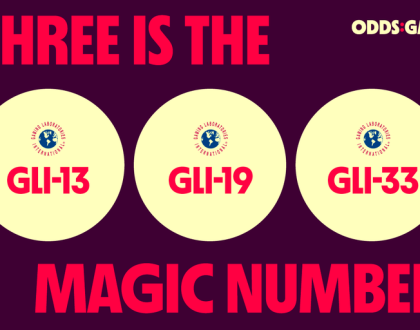Navigating Casino Licensing Authorities

Delving into the world of online gambling can be an exhilarating experience, but it’s crucial to prioritize safety and fairness in the gaming environment. Understanding the casino licensing authorities is paramount in ensuring that players are protected from fraudulent activities and unfair gaming practices. This blog post aims to provide an informative guide on navigating the most reputable licensing authorities in the industry, emphasizing the significance of selecting trustworthy online casinos that operate under the strict regulations of these governing bodies. By equipping yourself with this knowledge, you can confidently engage in online gambling, knowing that you are participating in a secure and fair gaming environment.
Understanding Casino Licensing Authorities
To ensure a safe and fair gaming environment, it is essential to understand the role of casino licensing authorities. These regulatory bodies are responsible for overseeing the operations of online and land-based casinos to ensure that they comply with industry standards and regulations. By obtaining a valid license from a reputable licensing authority, casinos demonstrate their commitment to providing a secure and trustworthy gaming experience for their customers.
Global Licensing Bodies
Any casino seeking to operate on an international level must obtain a license from a global licensing body such as the Malta Gaming Authority (MGA), the United Kingdom Gambling Commission (UKGC), or the Gibraltar Regulatory Authority. These regulatory bodies are known for their stringent requirements and strict enforcement of gaming laws, providing a high level of protection for players and ensuring that operators adhere to the highest standards of integrity and transparency. Being licensed by a global authority also allows casinos to offer their services to players from multiple jurisdictions, thereby expanding their market reach.
Regional Licensing Authorities
Gaming jurisdictions such as the Nevada Gaming Control Board in the United States, the Alderney Gambling Control Commission in the Channel Islands, and the Kahnawake Gaming Commission in Canada are examples of regional licensing authorities that regulate casinos within specific geographic areas. While they may not have the same global reach as the aforementioned bodies, these licensing authorities play a crucial role in overseeing the operations of casinos within their respective regions, ensuring that they comply with local laws and regulations.
To obtain a license from a regional gaming authority, casinos must demonstrate their ability to provide a safe and secure gaming environment, adhere to responsible gambling practices, and protect the interests of players within that specific jurisdiction. While their scope may be limited to a certain geographical area, regional licensing authorities are instrumental in upholding the integrity of the gaming industry at a local level.
Criteria for Licensing
Keep in mind that casino licensing authorities have specific criteria that operators must meet in order to obtain a license. These criteria are designed to ensure that the casino operates in a fair, responsible, and transparent manner, providing a safe and secure gaming environment for players.
Fairness and Integrity
Criteria for fairness and integrity typically include requirements for random number generators (RNG) to ensure that game outcomes are truly random and not manipulated. Additionally, operators are often required to demonstrate a commitment to responsible gaming practices, including measures to prevent problem gambling and underage access to the games.
Player Protection and Support
Random number generators (RNG) are a critical component of player protection, as they ensure that game outcomes are unpredictable and fair. Additionally, licensed operators are required to provide resources and support for players who may be experiencing issues with their gambling behavior. This can include self-exclusion programs, access to support services, and responsible gambling tools.
To ensure the safety and well-being of players, licensing authorities also require operators to adhere to strict security and privacy measures, including encryption technologies to protect sensitive data. These measures are essential in creating a secure gaming environment where players can have confidence in the integrity of the games and the protection of their personal information.
The Impact of Licensing on Player Security
Your safety and security as a player in the online casino world is directly impacted by the licensing of the casino. When a casino is licensed by a reputable authority, you can be assured that stringent measures are in place to protect your interests. Let’s explore the specific ways in which licensing influences player security.
Ensuring a Safe Gaming Environment
Gaming in a safe environment is crucial for players to enjoy their experience without any worries. When a casino is licensed, it means that it has been thoroughly vetted by a regulatory body to ensure that it meets specific standards for player protection. This includes measures to prevent fraud, money laundering, and underage gambling. As a player, you can have confidence that your personal and financial information is secure and that the games are fair.
Gaming in an unlicensed casino exposes you to numerous risks, including the potential for unfair games, non-payment of winnings, and lack of customer support. Therefore, it is essential to only engage with online casinos that hold a valid license from a reputable authority.
The Role of Licensing in Game Fairness
Measures taken by licensing authorities to ensure game fairness play a crucial role in providing a level playing field for all players. A licensed casino is subject to regular auditing and testing of its games by independent third-party agencies. This ensures that the games are not rigged and that the outcomes are truly random. As a player, you can have peace of mind knowing that the games you are playing are fair and that you have a fair chance of winning.
Licensing bodies impose strict regulations on the software providers that supply games to licensed casinos. This means that the games undergo rigorous testing for their fairness and are constantly monitored to maintain high standards. When choosing an online casino, always look for information on the licensing and certification of their games to ensure a fair and safe gaming experience.
Choosing the Right Casino
Despite the abundance of online casinos available today, not all of them are created equal. When choosing a casino to play at, it’s important to consider several factors to ensure a safe and fair gaming experience.
An essential step in choosing the right casino is to research its licensing and certifications. Look for casinos that are licensed by reputable gaming authorities such as the UK Gambling Commission, Malta Gaming Authority, or Gibraltar Regulatory Authority. These regulatory bodies have strict requirements for licensing and ensure that the casino operates within the boundaries of the law. Additionally, look for certifications from independent testing agencies such as eCOGRA or iTech Labs, which ensure that the casino’s games are fair and random.
Understanding Terms and Conditions
Researching and understanding the terms and conditions of a casino is crucial before making a decision. Take the time to review the terms related to bonuses, withdrawals, and any restrictions or limitations that may apply. Pay attention to wagering requirements, as they can significantly impact your ability to withdraw winnings from bonuses. Additionally, be wary of casinos with vague or ambiguous terms and conditions, as they may be trying to hide unfavorable rules that could negatively impact your gaming experience.
Conditions such as these can potentially lead to issues with withdrawals or bonus abuse if not understood beforehand. It’s important to thoroughly read and comprehend all terms and conditions to avoid any potential problems down the line.
Conclusion
The process of navigating casino licensing authorities is essential for maintaining a safe and fair gaming environment. As highlighted in this guide, understanding the various licensing authorities and their regulations is crucial for players and operators alike. By ensuring that casinos are licensed by reputable authorities, players can trust that the games are fair and their funds are secure. It is also important for operators to comply with licensing requirements in order to maintain a positive reputation and attract more players. Ultimately, the role of casino licensing authorities is crucial in upholding the integrity of the gaming industry and providing a safe and enjoyable experience for all involved.
FAQs:
What is the role of casino licensing authorities?
Licensing authorities oversee casino operations to ensure compliance with industry standards, promoting a safe and fair gaming environment.
Which are the prominent global licensing bodies for online casinos?
Global licensing bodies include the Malta Gaming Authority (MGA), the United Kingdom Gambling Commission (UKGC), and the Gibraltar Regulatory Authority.
What criteria do casinos need to meet for obtaining a license?
Casinos must adhere to criteria ensuring fairness, integrity, player protection, and support, including measures to prevent problem gambling and underage access.
How does licensing impact player security in online casinos?
Licensing ensures a safe gaming environment, protects against fraud, money laundering, and underage gambling, and guarantees fair and audited game outcomes.
Why is researching and understanding casino terms and conditions important?
Understanding terms and conditions is crucial to avoid potential issues with withdrawals, bonus abuse, and to ensure a transparent and fair gaming experience.
Michael
With over 20 years experience in web design, SEO and website promotion I always give you an expert advice in regard to any issues related to your Site Design, SEO, Internet Marketing, Promotion, Backlinks, Site Content. In order to help you find out what is missing or can be improved and get higher rankings in Google and more traffic.
Recommended Posts

Mobile Payments in iGaming
July 26, 2024

EveryMatrix & beBettor Ensure Safer UK Gambling
July 26, 2024

Oddsgate Secures GLI-33 Certification
July 26, 2024




